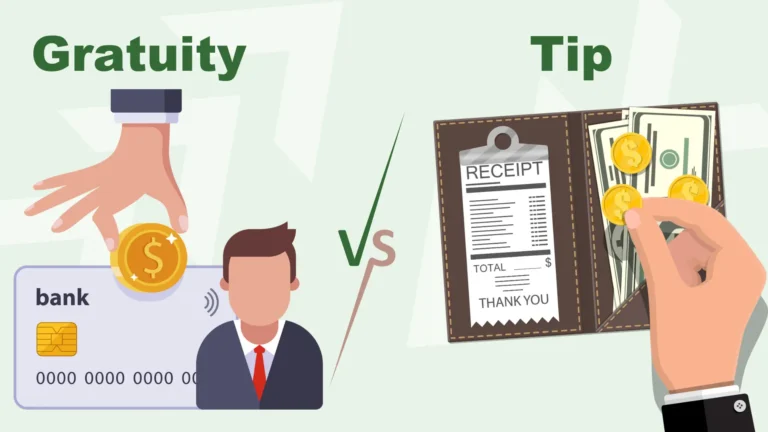Gratuity for Private Sector Employees in UAE
Gratuity for private sector employees in UAE is a payment that workers receive when their employment ends. It is a legal right, calculated based on the length of service and the last wage, ensuring employees are fairly compensated after leaving a job. This payment acts as a financial safety net for workers moving on from their roles.
The rules around gratuity apply to most private sector employees, but there are clear criteria that determine who qualifies and how much they get. Knowing these details helps employees understand their rights and what to expect when their contract ends. You can also explore more on how gratuity is calculated in UAE using our free calculator tool.
Understanding how gratuity is calculated and paid can prevent confusion and disputes. That’s why it’s essential for both employers and employees to stay informed about UAE gratuity rules.

Key Takeaways
- Gratuity is a required end-of-service payment for private sector employees.
- Eligibility and amounts depend on the worker’s duration of employment.
- Clear rules help avoid conflicts over gratuity payments.
Overview of Gratuity in the UAE
Gratuity in the UAE is a key benefit for employees after completing their contract or service period. It has specific rules depending on whether the employee works in the private or public sector. The way gratuity is calculated and regulated differs significantly between these sectors. Learn more about gratuity entitlements for domestic workers in UAE.
Legal Definition and Importance
Gratuity is a lump sum payment made to employees when they end their employment, usually after at least one year of continuous service. It rewards loyalty and long-term contribution to a company.
In the UAE, gratuity is governed by the UAE Labour Law 2026 . It is considered a legal entitlement, not a bonus or gift. The amount depends on the length of service and the employee’s final wage.
Gratuity helps protect workers financially when they leave a job. It also encourages job stability and fair treatment by employers.
Regulatory Framework for Private Sector Employees
For private sector workers, gratuity is regulated mainly by Federal Law No. 8 of 1980, known as the UAE Labour Law. This law outlines how gratuity must be calculated and the conditions for eligibility. During the initial five years, workers receive 21 days’ basic salary for each completed year. For any years beyond five, the payment increases to 30 days per year. The law caps gratuity at a maximum of two years’ basic pay.
Employees dismissed for a valid reason may lose the right to full gratuity. If leaving voluntarily before one year, no gratuity is paid.
Comparison With Public Sector Gratuity
Public sector employees in the UAE receive gratuity under different rules, often more generous than in the private sector. The government sets its own regulations for civil servants. In many cases, public sector gratuity is linked with pension schemes.
The calculation formula and eligibility criteria can vary by emirate and government entity. Private sector gratuity focuses on basic pay, while public sector calculations may include allowances. This often results in higher final gratuity sums for government workers.
Eligibility Criteria for Private Sector Gratuity
Gratuity eligibility depends on the length of service, type of employment contract, and specific exceptions under UAE labor law. These rules set the conditions under which an employee can claim end-of-service benefits.
Minimum Service Requirements
An employee must work at least one year continuously for an employer to qualify for gratuity pay. The one-year period counts from the start of their contract without any major breaks. Employees who leave before completing one year are not entitled to gratuity.
If the service exceeds one year, the gratuity is calculated based on the total time worked. Partial years beyond the first year are counted proportionally. This minimum service rule applies regardless of the employee’s position, level, or salary.
Contract Types Impacting Eligibility
Gratuity applies to both limited (fixed-term) and unlimited (open-ended) employment contracts. However, the contract type may influence how gratuity is calculated or paid. For example, a fixed-term contract that expires naturally entitles the employee to full gratuity for the entire period worked.
In contrast, if an employee resigns from an unlimited contract before completing one year or without valid cause, they may receive reduced or no gratuity, depending on the circumstances. Contract renewal or extension also affects eligibility as continuous service is the key factor.
Exclusions and Special Cases
Some categories of workers, such as domestic staff and part-time employees, may be excluded from gratuity under UAE law. Also, employees terminated for gross misconduct usually forfeit their gratuity rights.
Employees who retire at or above the legal retirement age are entitled to full gratuity without penalty. If an employee dies during employment, their gratuity is normally paid to the legal heirs.
Certain temporary absences like approved leave generally do not break the continuity of service for gratuity eligibility.
Calculation of Gratuity for Private Sector Employees
Gratuity in the UAE is based on the length of service and the last basic salary. Different rules apply if an employee resigns or is terminated. Some allowances and deductions can affect the final amount. Recent changes also influence how gratuity is calculated for private sector workers.
Formula for Gratuity Calculation
Gratuity is calculated using the employee’s last basic salary and the total years of service. For the first five years, the employee earns 21 days of basic pay for each year worked. After completing five years, the rate increases to 30 days of basic salary per year for the remaining service period. However, the total gratuity amount is capped at two years’ basic salary, no matter how long the employee has worked.
Example:
| Years of Service | Days per Year |
| 1 to 5 | 21 days × years |
| Above 5 | (21 days × 5) + (30 days × additional years) |
This formula only counts full years of service. Partial years usually do not add to the gratuity.
Impact of Resignation Versus Termination
If an employee resigns before completing five years, they may not receive any gratuity. For resignation after five years, they get prorated gratuity at 21 days per year for the first five years and 30 days for the remaining years.
If the employee is terminated without cause, full gratuity is payable regardless of years worked. Termination with cause (e.g., gross misconduct) can lead to loss of gratuity rights.
Employees should check details in their contract, as some companies might offer better terms.
Deductions and Allowances
Gratuity is computed using only the basic salary, excluding allowances like housing, transport, or bonuses. Only fixed basic salary counts toward the calculation.
Employers can deduct any outstanding loans or advances from the gratuity amount. However, no deductions are allowed for penalties or fines unless stated by law.
Employees should clarify which parts of their pay count toward gratuity during contract negotiations or upon leaving.
Recent Updates to Calculation Methods
In 2023, UAE introduced updates to the Labor Law affecting gratuity. One key change allows more flexibility in how employers and employees agree to calculate gratuity. This helps to include some allowances if mutually agreed.
Additionally, the new law emphasizes clear documentation when gratuity terms differ from the standard formula. It also improves protections for part-time and temporary workers regarding gratuity rights.
Employers are now required to provide detailed gratuity calculations on the final settlement paper. This increase in transparency helps employees understand exactly how their gratuity was worked out.
Payment and Dispute Resolution
Gratuity payments in the UAE private sector follow clear rules for how and when they must be paid. When disagreements happen, there are specific steps to handle these disputes legally and fairly.
Gratuity Payment Process
Employers must calculate the end-of-service gratuity based on the employee’s last basic salary and length of service. The payment usually equals 21 days’ wage for each year of the first five years and increases to 30 days’ wage per year beyond that.
The employer should pay this amount in full when the employee leaves the company. It is important to note that gratuity excludes any bonuses or allowances, and payment is often made through bank transfer or cheque.
Failure to pay the gratuity can lead to legal consequences for the employer under UAE labor law.
Timeframe for Payout
Gratuity must be paid promptly once an employee’s contract ends. According to UAE labor law, the payment should be made within 14 days after the termination of the contract.
Delays beyond this period are not allowed without valid reasons. Employers usually inform employees about the payment date when the contract ends. In some cases, the delay can affect the employer’s legal standing.
Employees are advised to keep documentation proving their contract end date and payment attempts.
Resolving Gratuity Disputes
If an employee disagrees with the gratuity amount or payment timing, they should first try to resolve the issue directly with the employer. Clear communication and documenting all correspondence help.
If the issue remains, the employee can file a complaint with the Ministry of Human Resources and Emiratisation (MOHRE). MOHRE will investigate and try to settle the dispute through mediation.
If mediation fails, the case may be escalated to the Labour Court. The court reviews contracts, payment records, and other evidence before making a ruling. Most disputes resolve before court, saving time and expenses.







I like the helpful info you provide in your articles.
I will bookmark your weblog and check again here
regularly. I am quite sure I’ll learn lots of new stuff
right here! Good luck for the next!